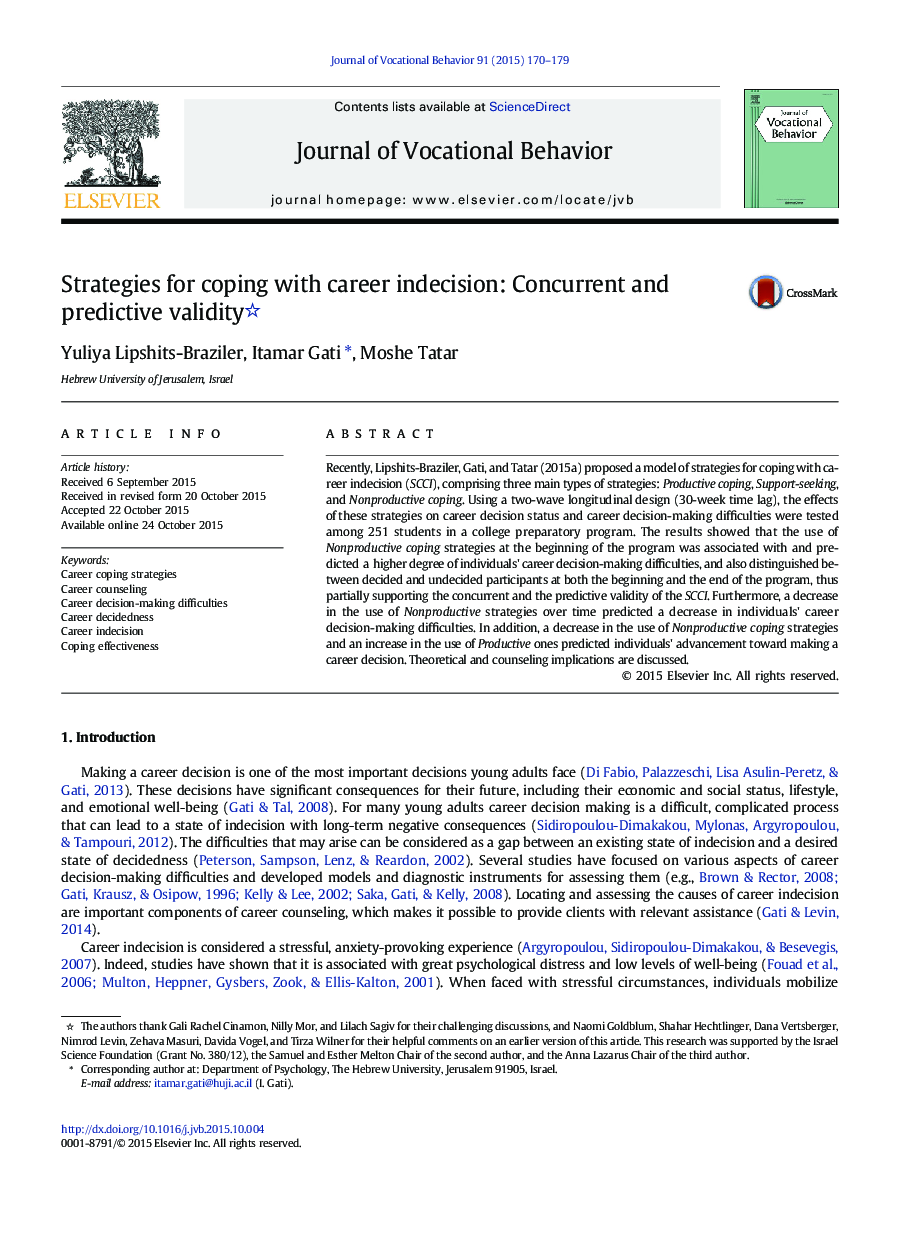| کد مقاله | کد نشریه | سال انتشار | مقاله انگلیسی | نسخه تمام متن |
|---|---|---|---|---|
| 886747 | 1471808 | 2015 | 10 صفحه PDF | دانلود رایگان |
• We tested the effects of strategies for coping with career indecision on career decision-making status and difficulties.
• We designed a 2-wave (30-week time lag) longitudinal study with 251 Israeli students in a college preparatory program.
• Nonproductive coping strategies at T1 predicted a less advanced career decision status and more difficulties at T1 and T2.
• A decrease in Nonproductive coping from T1 to T2 predicted a decrease in career decision-making difficulties.
• A decrease in Nonproductive coping and an increase in Productive coping predicted advancement toward a career decision.
Recently, Lipshits-Braziler, Gati, and Tatar (2015a) proposed a model of strategies for coping with career indecision (SCCI), comprising three main types of strategies: Productive coping, Support-seeking, and Nonproductive coping. Using a two-wave longitudinal design (30-week time lag), the effects of these strategies on career decision status and career decision-making difficulties were tested among 251 students in a college preparatory program. The results showed that the use of Nonproductive coping strategies at the beginning of the program was associated with and predicted a higher degree of individuals' career decision-making difficulties, and also distinguished between decided and undecided participants at both the beginning and the end of the program, thus partially supporting the concurrent and the predictive validity of the SCCI. Furthermore, a decrease in the use of Nonproductive strategies over time predicted a decrease in individuals' career decision-making difficulties. In addition, a decrease in the use of Nonproductive coping strategies and an increase in the use of Productive ones predicted individuals' advancement toward making a career decision. Theoretical and counseling implications are discussed.
Journal: Journal of Vocational Behavior - Volume 91, December 2015, Pages 170–179
